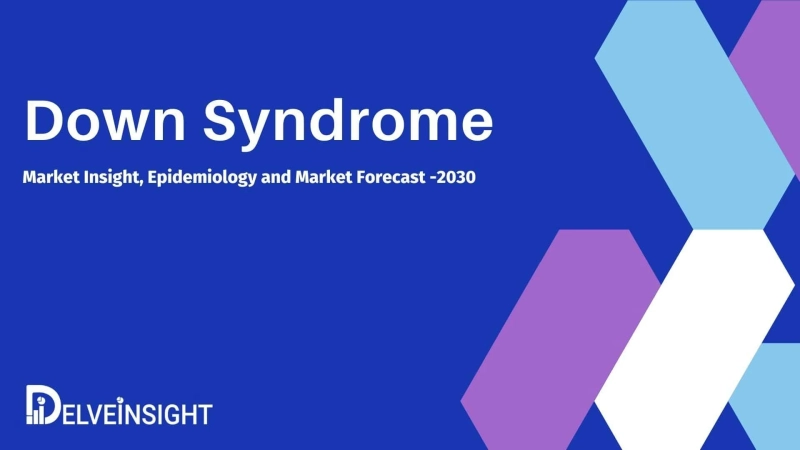Down Syndrome is a condition in which a person's chromosomes are abnormally large. It is a hereditary condition caused by an extra copy of chromosome 21, which results in a total of 47 chromosomes rather than 46. Down's syndrome causes an intellectual disability, distinct facial appearance, and developmental delays. People with Down Syndrome may be born with various congenital disabilities, with half of them having heart disease.
There are majorly three kinds of Down Syndrome: trisomy 21, translocation, and mosaicism. Other disorders like digestive difficulties, leukemia, and hypertension are also frequent.
Down Syndrome Causes
Both parents' genes are passed down to their children across every case of reproduction.Each cell in the baby's body is intended to receive 23 pairs of chromosomes, for a total of 46 chromosomes.The mother contributes half of the chromosomes, while the father contributes the other half.One of the chromosomes in children with Down Syndrome does not separate properly.Instead of two copies of chromosome 21, the newborn has three copies or an additional half copy.This extra chromosome leads to problems with mental and physical appearance. As a result, Down Syndrome causes problems with physical development and mental health.Down Syndrome Signs & Symptoms
Every Individual with Down Syndrome is different, with mild, moderate, or severe intellectual and developmental difficulties. Some people are in good health, while others have significant health issues such as heart problems. Down Syndrome affects both children and adults in different ways.
Some of the Down Syndrome signs & symptoms are :
Flattened faceSmall headShort neckProtruding tongueUpward slanting eyelidsExcessive flexibilityUnusually shaped or small earsPoor muscular toneDown Syndrome Diagnosis
Screening tests and diagnostic tests are the two types of tests for Down Syndrome Diagnosis during pregnancy.
Down Syndrome Epidemiology
The total diagnosed Down Syndrome prevalent cases, type-specific diagnosed prevalently the population of Down syndrome, gender-specific diagnosed prevalent population of Down syndrome, age-specific diagnosed Down Syndrome prevalent population, and diagnosed prevalent population of Down syndrome by clinical manifestation is all part of the Down Syndrome epidemiology.
In 2017, the total diagnosed Down Syndrome prevalent population in the 7MM was around 545,992 cases, with a significant increase expected during the study period (2017–2030).
Down Syndrome Treatment
There is no specific Down syndrome treatment. However, healthcare professionals may recommend additional health screening for issues common to the disease. Down syndrome is the common genetic cause of severe learning disabilities in children associated with developmental delays, learning difficulties, health issues, and some physical abnormalities. The current treatment targets symptoms but doesn’t target the underlying mechanisms causing the deficits. The Down syndrome treatment includes speech therapy, physical therapy, occupational therapy, and special education. Drug therapy is not currently a component of standard care for Down syndrome.
Down Syndrome Treatment Market
People with Down syndrome are vulnerable to certain illnesses and medical issues, their development is not inevitable as a result of their genetic structure. As a result, numerous companies are investing in the development of appropriate therapies for Down syndrome treatment, owing to the current unmet demands. Many recent clinical trials, on the other hand, have been inadequately managed, and no controlled clinical studies for Down syndrome have established their safety and efficacy. In addition, as prenatal screening tests have become more common in the United States, the number of infants born with Down syndrome has declined dramatically.
The Down Syndrome market size is expected to grow over the forecast period (2020– 2030) due to the advent of new therapies. According to DelveInsight's estimate, the diagnosed prevalence of Down syndrome will rise between 2020 and 2030. The expansion of the Down syndrome market will be driven by an increase in the number of people diagnosed as well as a more general understanding.
Down Syndrome Emerging Therapy Assessment
Many companies are working on various drugs to find an effective therapy for Down syndrome treatment, including NeuroNascent, ManRos, AC Immune Therapeutics, Balance Therapeutics, and others. . However, some drugs lag due to lack of efficacy and safety concerns, some are discontinued, or some are in the very early stages of the development process, making Down Syndrome market size estimation of these drugs at this stage difficult.
The "Down Syndrome (DS) – Market Insights, Epidemiology, and Market Forecast – 2030" report from DelveInsight provides an in-depth understanding of historical and forecasted epidemiology, as well as market trends in the United States, EU5 (Germany, Spain, Italy, France, and the United Kingdom), and Japan.
About DelveInsight
DelveInsight is a Business Consulting and Market research company, providing expert business solutions for the life science vertical and offering quintessential advisory services in the areas of R&D, Strategy Formulation, Operations, Competitive Intelligence, Competitive Landscaping, and Mergers & Acquisitions.


